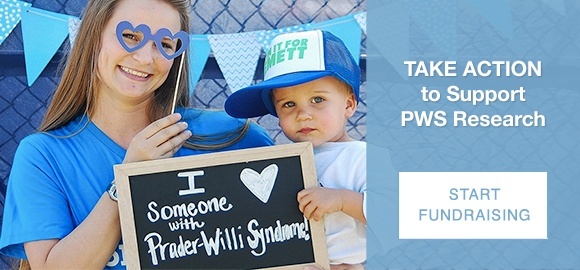A special contribution by guest blogger Will Greene.
 The future of PWS research depends on more than just scientists—it also needs the voices of parents, caregivers, and PWS advocates to guide meaningful progress. Becoming an Advocate Reviewer for FPWR is a powerful way to make sure that your voice is heard.
The future of PWS research depends on more than just scientists—it also needs the voices of parents, caregivers, and PWS advocates to guide meaningful progress. Becoming an Advocate Reviewer for FPWR is a powerful way to make sure that your voice is heard.
For the past three years, I’ve served as an Advocate Reviewer for FPWR, working alongside scientists and other PWS community members to evaluate research proposals that could lead to groundbreaking advances.
In this post, I share why I volunteered, how the review process works, and why your voice is so important.
Why I Got Into PWS Research
My journey into rare disease research began in late 2021 when my son Ari was born with many of the telltale signs and symptoms of Prader-Willi syndrome (PWS). A few weeks later, his genetic diagnosis launched us on a quest to find solutions for the terrifying challenges that lay ahead.
syndrome (PWS). A few weeks later, his genetic diagnosis launched us on a quest to find solutions for the terrifying challenges that lay ahead.
FPWR was one of the first beacons of hope that we discovered in our caregiver journey. It's not the only organization funding high-quality PWS research, but it's definitely one of the most impactful. That's why my wife and I got involved in many FPWR activities, including events, registry participation, and fundraising to help drive their cutting-edge research.
Eventually, I decided to become an Advocate Reviewer because I wanted to get closer to the science and do my part to ensure that the funds we raise are spent in the best possible way. While I’m not a research scientist myself, I draw upon my professional and personal experiences to add a layer of common sense to an otherwise highly technical process.
How FPWR’s Grant Review Process Works
FPWR runs two external grant funding cycles each year—one in the spring and one in the fall. Each cycle awards over $1 million to 8–12 grants, typically valued between $50,000 and $150,000, and lasting 12–18 months. These grants draw applications from researchers around the world and are highly competitive.
FPWR’s review process is both rigorous and collaborative. Each grant is reviewed by five individuals: three scientific reviewers who assess technical merit and feasibility and two Advocate Reviewers who focus on clarity, relevance, and alignment with community needs.
As an Advocate Reviewer, you’re assigned to review four grants per cycle:
- For two of the grants, you’ll act as a full reviewer, providing detailed written answers about strengths, weaknesses, community significance, the research team, and other factors.
- For the other two, you’ll act as a reader, offering lighter reviews focused on strengths, weaknesses, and any confidential comments for the team.
Each grant ultimately receives a 1–9 ranking, where 1 is exceptional and 9 is poor. The process concludes with discussions between Advocate Reviewers to ensure a balanced perspective before submissions are finalized.
What I Look for in a Grant
I’ll admit—some of these proposals are way over my head. While I’ve worked with many scientists and clinicians over my career, I rarely understand every technical detail. That’s why FPWR’s reliance on both scientific and advocate reviewers is so valuable.
As an Advocate Reviewer, I bring a unique perspective shaped by my roles as a parent, caregiver, and advocate. Here’s what I focus on:
-
Clarity: Even without technical credentials, can I broadly understand the researchers’ goals? Clear communication inspires confidence in their ability to share findings effectively.
-
Relevance: Does the project address a meaningful need for families affected by PWS? Proposals tackling hyperphagia, behavioral issues, or quality of life stand out.
-
Team Quality: Do the project leaders have a track record of success? Proposals with demonstrated results or potential for follow-on funding are compelling.
-
Innovation: Does the project bring a fresh and promising perspective to solving PWS challenges?
One of the hardest parts of this process is balancing early-stage, exploratory research with translational projects closer to clinical application. While families like mine need solutions now, basic research is essential to unlocking long-term breakthroughs.
Your Voice Matters: Join Us in Shaping PWS Research
Ultimately, reviewing grants is as much an art as it is a science. It’s about finding the sweet spot between what’s promising and what’s practical, between what excites the imagination and what meets the immediate needs of our community.
If you’re a parent, caregiver, or advocate for someone with PWS, you don’t need a PhD to make an impact. All it takes is an open mind, a passion for helping others, and a commitment to driving meaningful change for those living with PWS.
FPWR is always seeking dedicated individuals to join our team of Advocate Reviewers. Interested in being part of this rewarding process? Email Jessica Bohonowych to join our interest list for the next grant cycle. Together, we can help shape the future of PWS research!







